[vc_row][vc_column][vc_column_text]
It’s not easy to save up for and then get onto the property ladder. It can take years to save up the money you need, especially if it’s your first home. That’s where help to buy mortgages can help. Think of it like a government loan that comes with some caveats.

If you were 26 years of age in 1997, half your age group could afford to buy their own home. According to the Office for National Statistics, in 2017, that age had increased by eight years to 34 years old.[1] The decline of homeownership among young adults has led some to say the “age of homeownership” is nearly over — if it’s not already.
Despite this, there are notable government-backed schemes available to help would-be home buyers get onto the property ladder faster. Example schemes include the Help to Buy ISA, first-time buyer stamp duty land tax (SDLT) relief and the Help to Buy Equity Loan.
In this blog, we take a closer look at the Help to Buy Equity Loan.
The Equity loan scheme was publicly launched on the 1st of April 2021. Intended for first-time buyers, it’s a help to buy scheme solution with regional property price limits to enhance takeup among the people who need it the most.
Currently, the equity loan scheme will only be available until March 2023, although there is a possibility that this may be extended.
At its core, the equity loan means that the government will lend people as much as 20% on a new-build property (or 40% for those buying in London). Equity loans are one of the main components of the Government’s help to buy resources. What it means for buyers is that they only need to save up to 5% of the deposit needed to apply for a mortgage.
With the equity loan, the remainder of the property’s price is made up of the mortgage and the government loan. That means that you can borrow a smaller mortgage and that you have more options when it comes to the kind of mortgage deal you can choose from.
To qualify for equity loans, applicants have to meet some strict criteria. In England, the equity loan scheme is only intended for first time home buyers. In Wales and Scotland, you can still apply for an equity loan even if you’re not buying for the first time. Instead, the priority is then that you are purchasing a new build property.
Wherever you’re from in the UK, you also need to be aged 18 or over to be eligible for an equity loan. Under no conditions can you receive equity loans if you:

If you’re looking at help to buy mortgages, it helps to know what you can’t do once you have approval for an equity loan. For example, if you’re currently married or cohabiting, all applications for an equity loan must be joint applications. You’ll also have to live in the same home when you apply.
Equity loans will be granted if you:
It’s worth remembering that equity loans come with a price limit on the maximum purchase price, which varies by region.
The Help to Buy scheme has been a fantastic resource for first-time buyers who would otherwise have struggled to save the deposit needed to get onto the property ladder. However, it’s not without its issues. One of the main stumbling blocks that you need to be aware of is that if you decide to sell the property you bought using an equity loan, the government will want to have its 40% stake returned.
That means that if you buy a home with an equity loan and then sell, any profit that you make will need to be shared with the government. You’ll get to keep 60% of the profits, but the government will want 40% of the total profits of the sale.
If you’re not sure if you qualify, or you’re unsure of the details, the best person to speak to about being able to use a Help to Buy Equity Loan is the sales office of your new-build property. Alternatively, further information is available on the Help to Buy website.

If you’re eligible, the government will loan you up to 20% of the purchase price of your new home. You will not be charged any loan fees on this 20% for the first five years of owning your home. This means that, after you’ve also paid your 5% cash deposit, you only need to take out a mortgage for 75% of the purchase price, which can save you a lot in fees and mortgage lenders insurance.
For the first five years after receiving your equity loan, you won’t have to worry about paying back any fees or interest. You can, however, start making those repayments early if you choose to.
After those five years are up, you will have to pay an interest fee of 1.75% of the total equity loan amount, and that total will rise every year to match the Retail Price Index increases. What’s often overlooked is that the charges you pay for your equity loan won’t reduce the amount you initially borrowed.
You can repay the value at any time during the course of the Help to Buy Equity Loan, but the repayment process does require a solicitor and a Royal Institute of Chartered Surveyors (RICS) valuation. Lockings Solicitors can act for homeowners seeking to repay their Help to Buy Equity Loan.
It is important to note that the equity loan is based on the property’s value. So if the value of the property increases, so does the repayment figure of the loan. Also, be mindful that interest on the government’s 20% loan will be charged from the sixth year of ownership.
The property you are purchasing must be your only residence.
Subletting may be considered only in exceptional circumstances (e.g. a serving member of the Armed Forces who must serve away for a period of time). However, you must seek prior approval from the Help to Buy agency and your main lender before doing so.
You cannot rent out your existing home and buy a second home through a Help to Buy scheme.
The Help to Buy equity loan will be secured through a second charge registered on your property title at the Land Registry. This means that your property cannot be sold in the future unless the equity loan is repaid.
The Help to Buy scheme allows you to repay all or part of your equity loan.
An independent valuer will usually be required to provide a valuation of your property and you will also be responsible for the associated administration costs. A solicitor will also be needed for the repayment process, which our property solicitors can help you with.
You are not permitted to extend or alter the property without the consent of the Help to Buy Agency. If consent is granted for the improvements in writing, the upgrades will be ignored when your property is valued in the future to work out how much should be repaid.

The Help to Buy equity loan scheme was first introduced back in 2013. It’s allowed many more people to get onto the property, but it’s already seeing a growing number of restrictions as the scheme winds down. No more applications for the loan will be accepted after March 2023 (although there remains a possibility that the UK government will extend that deadline).
There are plenty of reasons why the scheme is being stopped. One of the main criticisms of Help to Buy is that it has inflated the costs of new-build properties, and that means the biggest winners of the scheme have been property developers rather than homebuyers. Another criticism is that by limiting the equity loan to new-build properties only, buyers will struggle to upsize later because the value of those homes doesn’t grow as quickly as older properties.
We can act for you and your mortgage lender when you buy your home with a Help to Buy equity loan. If you’re buying a home in England or Wales under a Help to Buy scheme, call Lockings Solicitors to make a free enquiry on 01482 300 200, or get in touch using our contact form.
[1] Office for National Statistics, ‘Milestones: journeying into adulthood’ (18 February 2019) https://www.ons.gov.uk/peoplepopulationandcommunity/populationandmigration/populationestimates/articles/milestonesjourneyingintoadulthood/2019-02-18#ownhome
[/vc_column_text][/vc_column][/vc_row]









If you are a customer of Lockings Solicitors and we have contracted with you online you may be entitled to use the EU Online Dispute Resolution (ODR) Platform to assist in resolving any dispute with us. This service can be found at https://ec.europa.eu/odr.
Our email address is welcome@lockings.co.uk
Lockings Solicitors is a trading name of Lockings Legal Services Limited registered in England and Wales company registration number 09244568. Lockings Legal Services Limited is authorised and regulated by the Solicitors Regulation Authority (Main Office SRA ID number 626081). A list of our directors is available for inspection at all our offices. Use the following link https://www.sra.org.uk/solicitors/standards-regulations/
for online access to the current professional rules applicable to solicitors. All calls are recorded for training and quality purposes.
The content on this website is for information only and is not intended to provide specific legal advice to a particular case. Should you require legal advice in relation to your particular situation then please do not hesitate to contact us.
VAT Number: 282 2447 58
Privacy Policy And Cookies | Accessibility | Terms & Conditions | Complaints Procedure
Copyright © 2023 Locking Solicitors, All Rights Reserved.